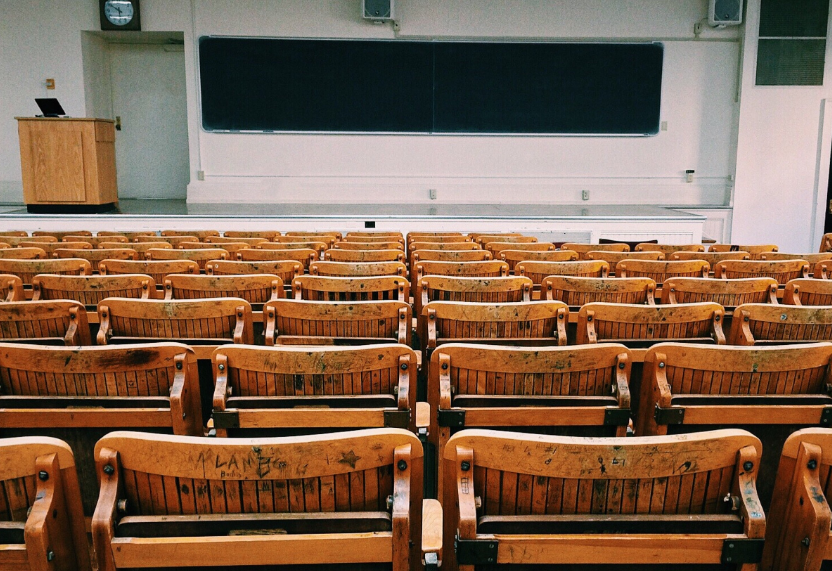Free speech is under siege on many university campuses, including right here in Canada. Professors, administrators, and students are “deplatforming” invited guests or disrupting and disparaging their fellow academics who fail to toe the politically correct party line.
Commonly understood, and with precious little evidence, these speakers are said to be “sexist,” “racist,” or “Islamophobic.” So, closed-minded enforcers, just like their hockey namesakes, try to prevent these guests from speaking—shouting them down, blocking entrances to lecture halls, setting off fire alarms, or physically attacking them.
In March 2017, Charles Murray, the justly-famous American political scientist, was prevented from speaking at Middlebury College. More recently, in August 2019, Amy Wax, the eminent law professor at the University of Pennsylvania, was demeaned by hundreds of her colleagues and students for publishing a well-reasoned op-ed in the Philadelphia Inquirer. Her “crime” was arguing in favour of bourgeois values and against what were once called “lower class values.”
In Canada, the best known political attack has been against the University of Toronto psychology professor Jordan Peterson, who was told by senior university administrators to use “zur” and “zir” as gendered pronouns when speaking to students. Thankfully, Prof. Peterson rejected the demand.
Similarly, graduate student Lindsay Shephard was called into a kangaroo court of senior administrators at Wilfred Laurier University because, as a graduate teaching assistant, she showed a few minutes of a video—from TV Ontario no less—in which Prof. Peterson defended his rejection of some gendered pronouns.
As it turned out, both of these people won their battles, which is a rather surprising outcome. Surprising and infrequent, because many others have not.
Consider, for example, the cases of Lecturer Paul Bali from Ryerson University, Prof. Ricardo Duchesne at the University of New Brunswick, Prof. Rick Mehta from Acadia, and Prof. Jeff Muehlbauer from Brandon University. These intellectuals have suffered conspicuous repercussions for speaking out.
Nevertheless, some recent developments give us renewed hope.
Most important, two Conservative provincial governments, those of Jason Kenney in Alberta and Doug Ford in Ontario, have passed laws requiring universities to establish free speech on campuses or suffer financial penalties.
Given the ideological standoff existing on Canadian campuses today, such draconian laws are needed. Indeed, a law enforcing free speech is a serious dilemma because it will force universities to accept free speech on campus.
As a result, other provincial governments will probably wait to see what happens before acting themselves.
As well, a committee of very distinguished professors at the University of Chicago—truly a world class university—has written a report on free speech. This report reminds professors, administrators, and students that free speech is the Gold Standard for excellent universities.
Simply, this committee argues that professors and students need unrestricted freedom to study almost anything and to support or refute any idea, policy, or practice existing anywhere in the world. The value of free inquiry is the very reason for universities, and it is the foundation of free and democratic societies.
The truly fortunate part of this story is that some Canadian universities are beginning to implement the “Chicago Principle.” Policies supporting freedom of speech are slowly creeping through the hallowed halls of universities, at least those in Alberta and Ontario.
A few universities in other provinces even started to recognize free speech as an important issue. Recently, the Society for Academic Freedom and Scholarship sponsored a panel discussion at Concordia University entitled “Disinviting, no-platforming, and disrupting: Do such tactics have a place at the University?”
As well, a group of students and faculty at UBC have established a free speech club with Ben Shapiro as the first guest.
This is a beginning.
Nevertheless, we need to remember what Jeff Muehlbaur said, after a long and painful ordeal at Brandon University: “I am in the boneyard now,” meaning that his academic life was over.
Unfortunately, academic life may be over on some Canadian universities. An institution without academic freedom is not a real university, and it should not be supported by either taxpaying citizens or fee-paying students.



